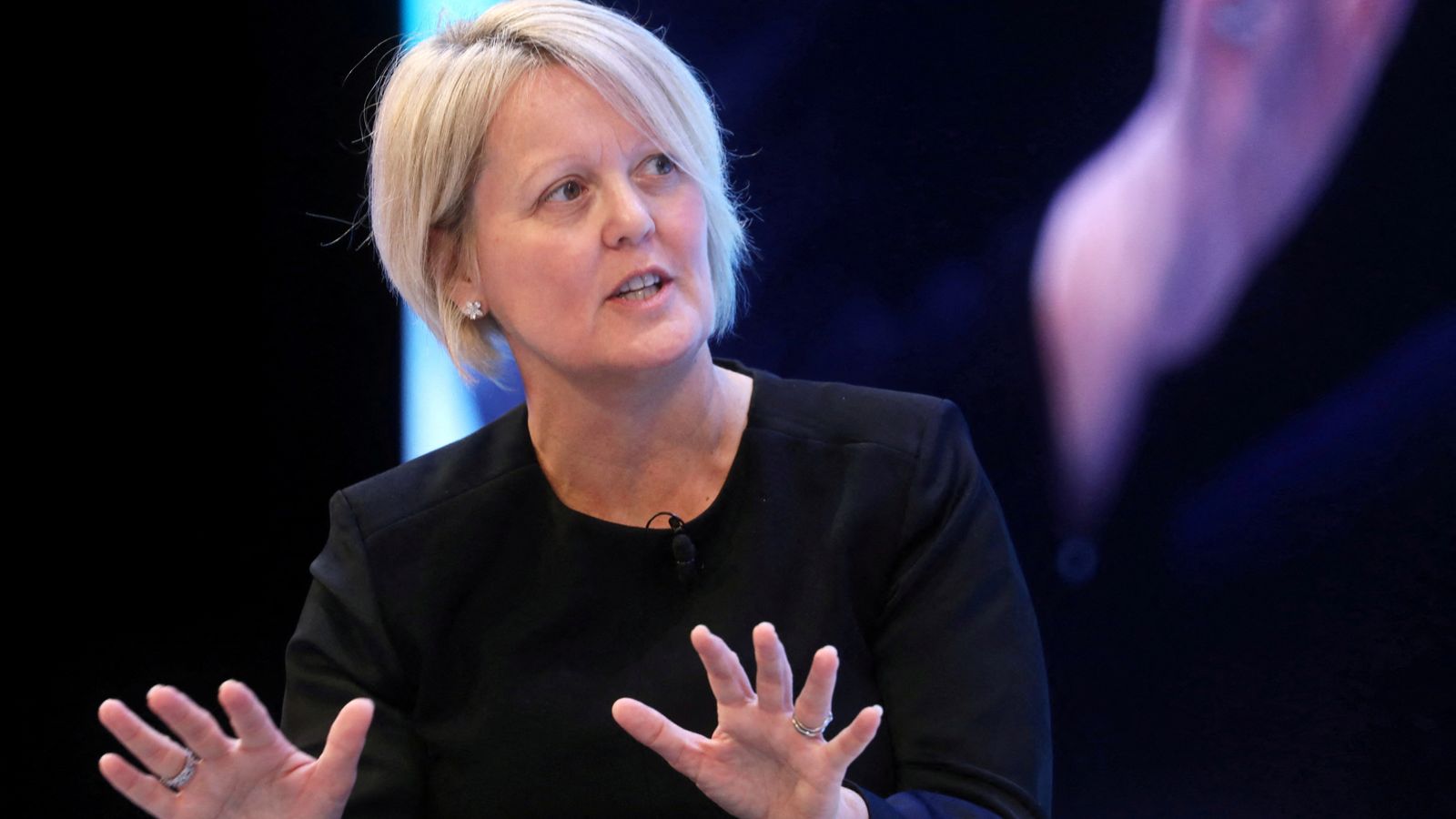The head of NatWest, which is part state-owned, has defended the amount of tax big banks pay.
Alison Rose, the chief executive, said banks were taxed more than “any other sector” and more than the financial service sectors in other countries.
Speaking on Ian King Live, Ms Rose said: “On taxes, the banking sector already pays significant taxes.
“We have normal taxes and the bank levy that has stayed in place so we’re paying more taxes than any other sector and more tax than the financial services sector in other countries.”
The bank levy is an 8% surcharge on bank profits over £25m.
It was imposed on the banks by former chancellor George Osborne in an attempt to ensure the UK remained competitive but banks continued to make what he called “a fair contribution” in the wake of taxpayer support given during the financial crisis.
The state still owns more than 48% of NatWest, a hangover from the financial crisis when the bank was bailed out by taxpayers to the tune of £45.5bn.
In the wake of the market turmoil caused by the mini-budget, Ms Rose said there has been a drop in business confidence.
“If you are a business owner and a household, uncertainty is really difficult and we’ve seen a massive drop in business confidence caused by uncertainty and instability in the swap curve that was created,” she said.
“None of that is good for businesses and households. What you want is economic stability, political stability and certainty so we’re very pleased there’s more of a calmness, less volatility in the market.”
Mortgages were one of the many areas thrown into chaos after the government’s mini-budget. More than five million households could see their annual mortgage payments rise by an average of £5,100 between now and the end of 2024, the Resolution Foundation had warned.
Mortgage rates have been coming down, Ms Rose said, which have been passed on to customers already.
But NatWest has become the latest bank to benefit from raised interest rates as higher borrowing costs raised quarterly earnings to £1.1bn. Pre-tax operating profits for the three months to the end of September were up 11 per cent from the £976m generated in the same period in 2021.
Despite the economic turmoil and the cost of living crisis being faced by households, the banking sector is doing well, Ms Rose added, better than at the time of the financial crash.
“There are economic cycles, there are macroeconomic challenges but the banking sector is resilient, well positioned, which is important to support customers and the economy as we navigate through the times ahead.”
Ms Rose said well-performing banks are good for the economy.
“We can support our customers and we need to make sure we remain competitive and an investable sector for people,” she said.
